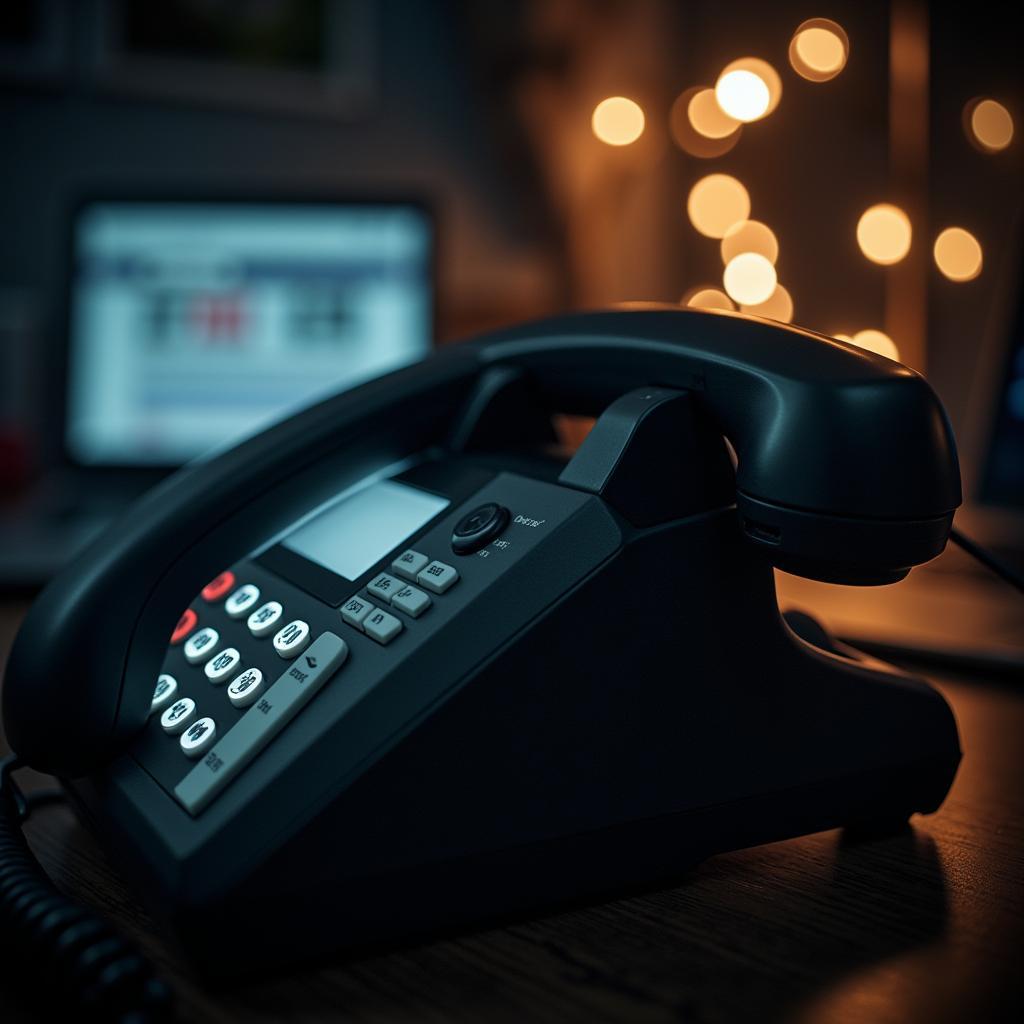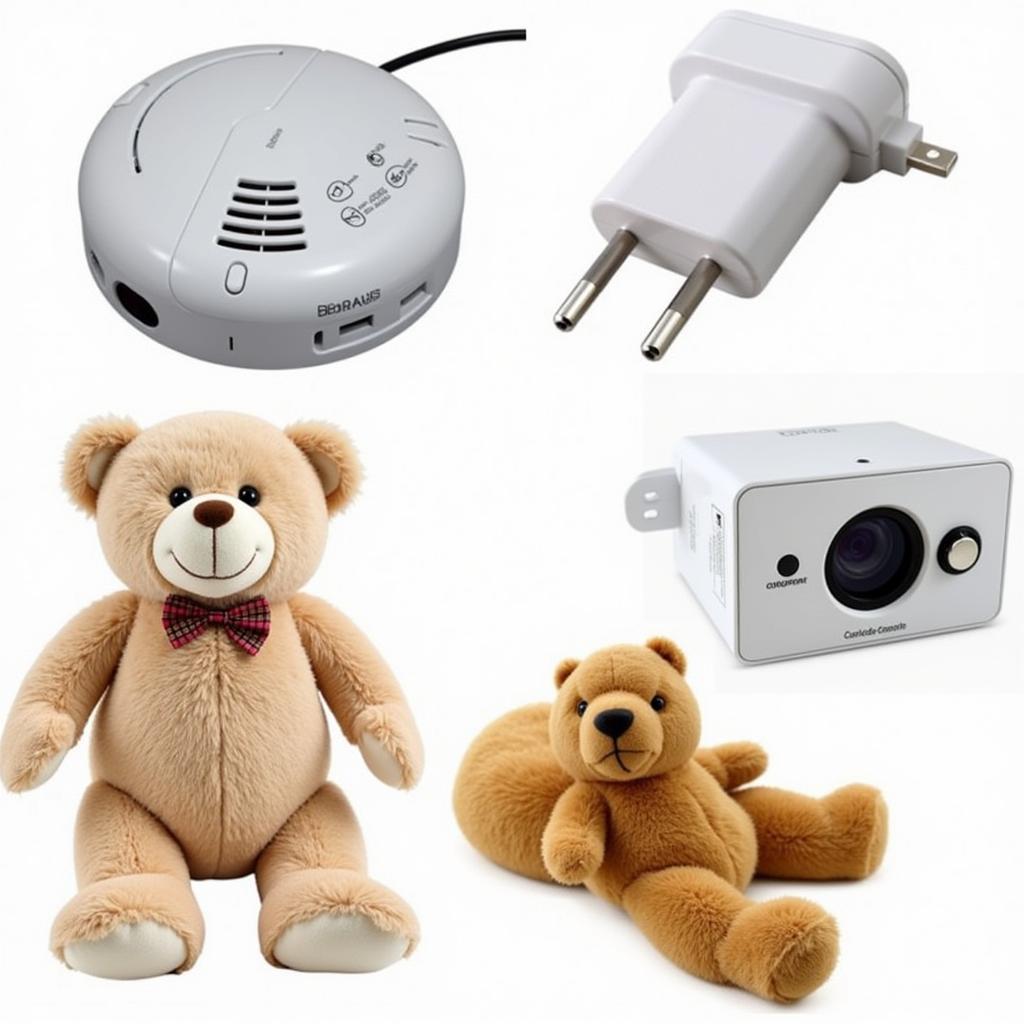A Bugged House can be a serious privacy violation. Whether you suspect corporate espionage or a nosy neighbor, knowing how to detect and prevent eavesdropping is crucial. This guide will equip you with the knowledge and resources to identify and address potential surveillance in your home. Let’s delve into the world of bug detection and learn how to secure your privacy. For those seeking immediate assistance, check out how to find if your house is bugged.
Signs Your House Might Be Bugged
Several indicators can suggest your home is under surveillance. These signs range from subtle anomalies to more overt evidence. It’s important to remember that one isolated sign might not be conclusive, but a combination of these indicators warrants further investigation.
- Strange Noises: Unusual clicking, static, or high-pitched whining sounds from electronic devices, especially phones, can indicate a bug.
- Interference with Electronics: Unexplained flickering of lights, static on the radio, or disruptions in television broadcasts can be caused by bugging devices.
- Physical Evidence: Look for small, unfamiliar devices or wires attached to walls, furniture, or electrical outlets. These might be hidden cameras or listening devices.
- Unusual Activity Around Your Home: Be aware of unfamiliar vehicles parked near your house or individuals loitering in the vicinity.
- Unexpected Repairs or Installations: Unnecessary repairs or installations by unknown individuals, especially involving phone lines or electrical wiring, can be a red flag.
 Signs of a bugged phone: Strange noises and interference
Signs of a bugged phone: Strange noises and interference
How Do You Find Out if Your House Is Bugged: A Step-by-Step Guide
If you suspect your house is bugged, there are several steps you can take to investigate. This process requires careful observation and attention to detail.
- Visual Inspection: Thoroughly examine your home, paying close attention to areas where bugs might be hidden, such as behind furniture, under rugs, and inside electrical outlets. Consider using a bug night light to help with your visual inspection.
- Electronic Sweep: Use a bug detector to scan for radio frequencies and electromagnetic fields emitted by surveillance devices. These devices are readily available online and in electronics stores. Check out DW electronics for more information on these types of devices.
- Professional Help: If your suspicions remain, consider hiring a professional bug sweeping service. These experts have the equipment and expertise to detect even the most sophisticated surveillance devices. You might also consider resources that explain how do you find out if your house is bugged.
 Professional conducting a bug sweep with specialized equipment
Professional conducting a bug sweep with specialized equipment
Preventing Your House from Being Bugged
Prevention is the best defense against eavesdropping. Implementing these measures can significantly reduce the risk of your house being bugged.
- Secure Your Wi-Fi Network: Use a strong password and enable encryption to protect your network from unauthorized access.
- Be Mindful of Visitors: Be cautious about who you allow into your home and avoid leaving visitors unattended in sensitive areas.
- Regularly Check Your Home: Periodically inspect your home for any signs of tampering or unfamiliar devices.
- Secure Your Phone Lines: Use encrypted phone lines or consider switching to a secure communication app.
Why is My House Bugged? Understanding the Motivations
Understanding the potential motivations behind bugging can help you assess your risk and take appropriate precautions.
- Corporate Espionage: Competitors might bug a business executive’s home to gain access to confidential information.
- Personal Disputes: In cases of divorce or other personal conflicts, one party might bug the other’s home to gather information.
- Stalking: Stalkers might bug a victim’s home to monitor their activities and whereabouts.
 Examples of hidden cameras disguised as everyday objects
Examples of hidden cameras disguised as everyday objects
Conclusion: Reclaiming Your Privacy in a Bugged House
Dealing with a bugged house can be a stressful experience, but by understanding the signs, methods of detection, and preventive measures, you can take control of your privacy. Remember to be vigilant, and if you suspect your home is bugged, don’t hesitate to seek professional help. For further assistance, consider learning more about how to find if your house is bugged.
FAQ
- What is the most common type of bugging device? Hidden cameras and audio recorders are the most prevalent.
- Can I detect bugs myself? Yes, you can perform a visual inspection and use a bug detector.
- How much does a professional bug sweep cost? The cost varies depending on the size of the property and the complexity of the sweep.
- Is it legal to bug someone’s house? No, it is illegal to eavesdrop on someone without their consent.
- What should I do if I find a bug in my house? Contact law enforcement immediately and preserve the evidence.
- How can I prevent my phone from being tapped? Use encrypted communication apps and be cautious about who has access to your phone.
- Are there any DIY methods for detecting bugs? Yes, you can perform a visual inspection, check for unusual phone activity, and use a radio frequency detector.
Need further assistance? Contact us 24/7 at Phone Number: 0902476650, Email: [email protected] or visit our address: 139 Đ. Võ Văn Kiệt, Hoà Long, Bà Rịa, Bà Rịa – Vũng Tàu, Việt Nam. We have a dedicated customer support team ready to help.





